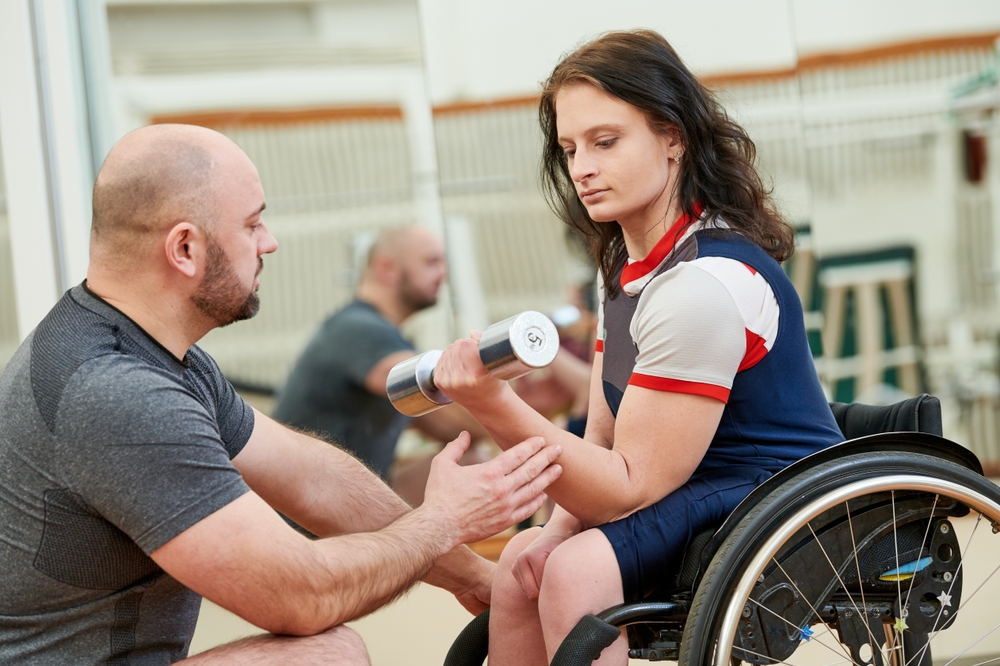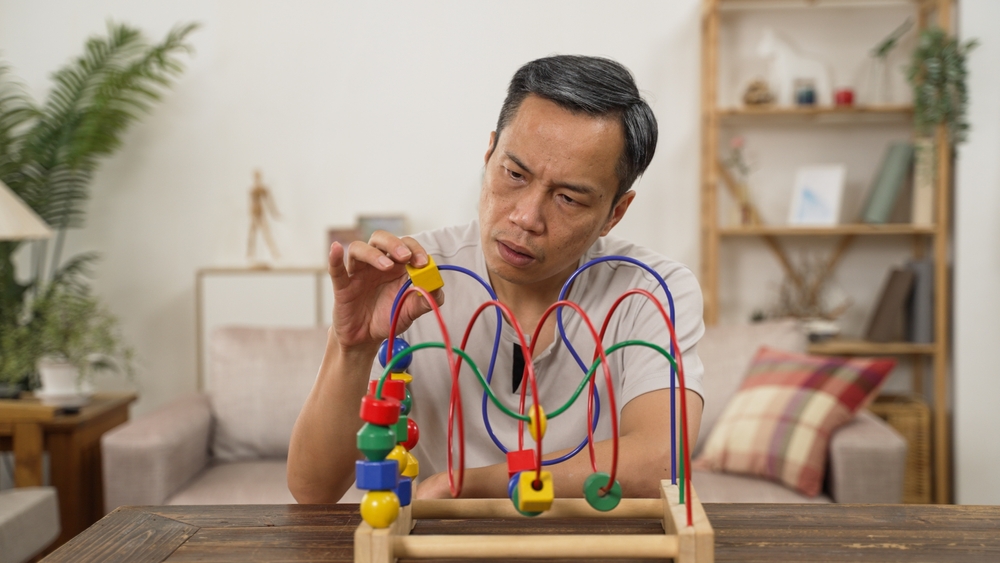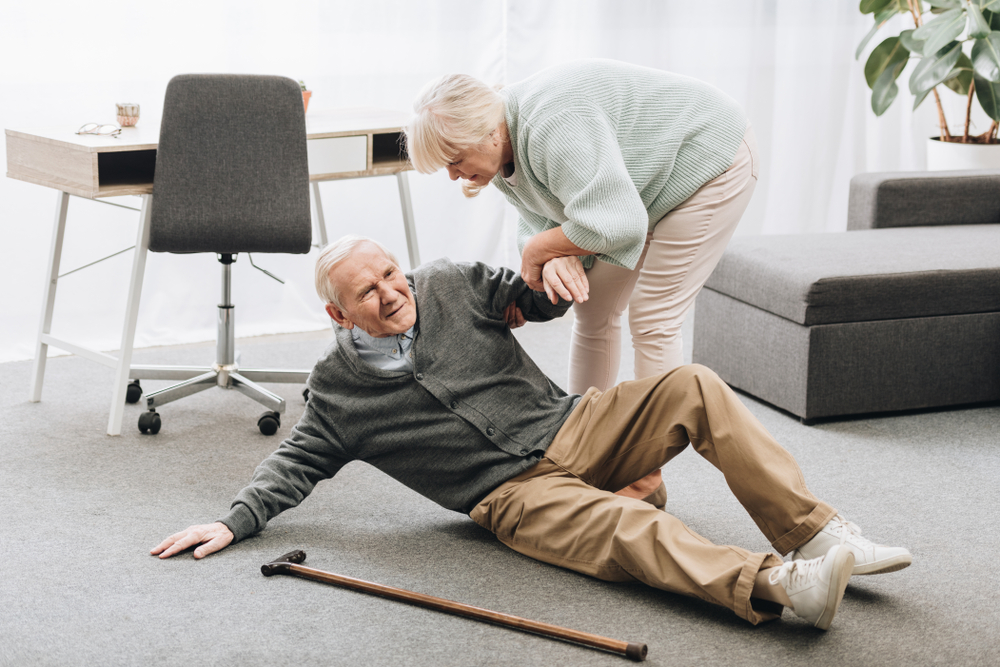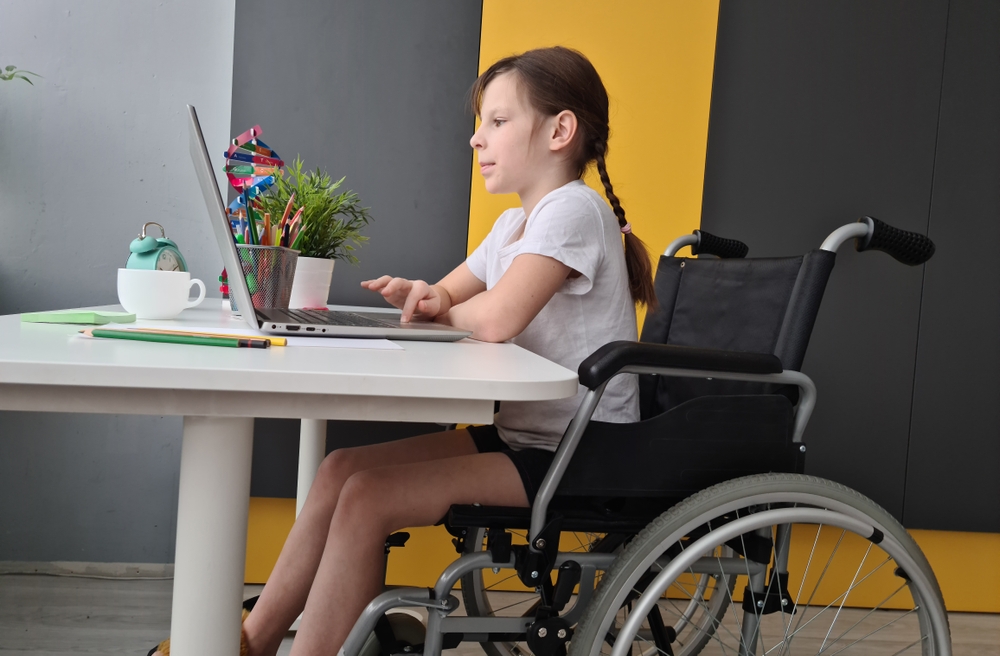Make an Appointment
Fine motor skills are necessary to do things that require precise, specific, and often small movements. Those suffering from neurological disorders after an injury, illness, or accident may have trouble complete these tasks.
Here, we’ll go into a little bit more detail on how occupational therapy helps develop fine motor skills and examples fine motor activities that can be helpful to a client’s progress.
What Are Fine Motor Activities?
Fine motor activities are everyday activities that focus on fine motor skills. These activities encourage a range of fine motor skills including:
- Pincer Grasp: The act of grasping by pinching together the thumb and index finger.
- Finger Isolation: Activating a single finger to do tasks like pushing or pointing.
- Thumb Opposition: Coordination between the thumb and other fingers to squeeze or hold something while strengthening the “web space” between the thumb and index finger.
- Tripod Grasp: Employing the pincer grasp while the object rests on the middle finger, much like what occurs when you hold a pencil.
- Hand-eye Coordination: When the hands coordinate with what the eyes see.
- Bilateral Coordination: When both hands coordinate with each other.
- Midline Integration: Involved with hand dominance and the ability to reach across one’s midline that separates the left and right sides of the body.
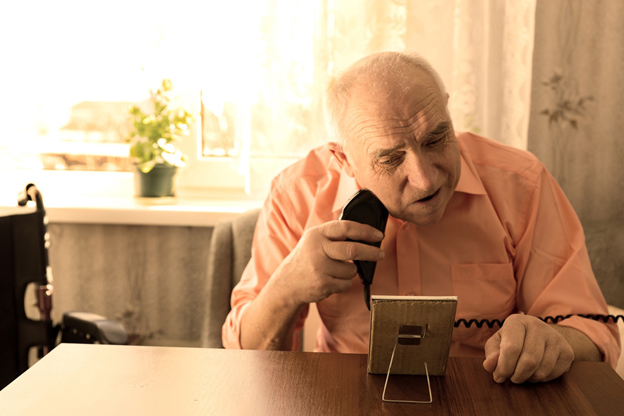
You can get creative with fine motor activities and there’s no one way to do them. So, long as an activity activates one’s fine motor skills, it can be called a fine motor activity.
Types of Fine Motor Activities
To give you some examples of the fine motor activities occupational therapy clients might be practising, we’ve broken them up into a few categories.
Dressing
It might not seem like it, but getting dressed employs a ton of fine motor skills. Activities like clasping buttons, putting on jewelry, and tying shoes are all great ways to exercise your fine motor capabilities.
Managing Medication
It’s often the case that occupational therapy clients have some form of medication they have to deal with. Those with fine motor skill disabilities can use this medication to their advantage and work on placing the small pills into and out of pill boxes or bottles.
Grooming
Grooming yourself properly is also an activity that requires fine motor skills. Tasks like applying making, tweezing your eyebrows, and shaving are all activities that target these fine muscles. But beware – some of these grooming activities can be dangerous and should be supervised.
Eating
In the case of eating, the act of actually feeding yourself takes a lot of fine motor skills. Holding a fork or spoon, accurately putting food onto your utensil, and getting said food into your mouth takes a lot of coordination and is a good activity to practise.
Managing Containers
Containers like the ones you might get at a grocery store to serve food require the employment of many fine motor skills. From unscrewing a jar of tomato sauce to opening a plastic container of takeaway Thai food, managing containers is a great fine motor activity.
Managing Money
From paper notes to tiny coins, managing money isn’t easy when your fine motor skills are compromised. Counting money or taking it in and out of a wallet is a classic everyday occurrence that one can work on in occupational therapy.
Locks
Using different kinds of locks require finesse in terms of fine motor skills. From turn likes to sliding locks to combination locks, these all are fantastic tools for people to practise their fine motor skills.
Typing
In the digital age, typing on a computer is all but a necessity. Those suffering with a loss of fine motor skills can re-learn a lot from typing on a keyboard as a form of fine motor activity.
Handwriting
There’s a reason why little kids with poor fine motor skills have messy handwriting. It takes a lot of coordination and practise. In occupational therapy, one might want to write in a journal as a fine motor activity.
Meal Preparation
Cooking and meal prep is another great way to work on fine motor skills. Chopping, stirring, and picking up kitchen tools can all be tough fine motor activities. Similar to grooming activities, most meal preparation activities should be done while supervised.
Shuffling Cards
There are so many fun ways to shuffle a deck of cards and they’re all fantastic for fine motor skill development. In occupational therapy, playing card games and taking turns shuffling is a great fine motor activity.
Screwing and Unscrewing
Between water bottles and jam jars, screwing and unscrewing things is no small feat for fine motor skills. It’s one of the best fine motor activities you can do to gain more confidence in those tools.
Ready to get in touch with an incredible occupational therapist? Well, you’ve come to the right place. At Physio Inq, we offer mobile occupational therapy services that can come to you. Give us a call today to book your first appointment.
Date Published: Thursday, August 29, 2019
Locate a Mobile Exercise Physiology
Service Near me
Get the experience & convinence you deserve to support your or a loved one's allied health needs.
Our Mobile Exercise Physiology team are currently serving & taking appointments in the following states and regions in Australia:
New South Wales
- Blacktown
- Blue Mountains
- Campbelltown And Macarthur
- Canterbury-Bankstown
- Central Coast
- Eastern Suburbs Sydney
- Georges River
- Hawkesbury
- Inner East Sydney
- Inner West Sydney
- Lower North Shore
- Newcastle
- Northern Beaches
- North Sydney
- Parramatta
- Penrith
- South West Sydney
- Sutherland Shire
- Sydney CBD
- The Hills Shire
- Upper North Shore
- Waverley
- Wollongong
Tasmania
Victoria
Need to get into direct contact with ur Client Services team? We're all ears. Call our team directly on 1300 731 733
